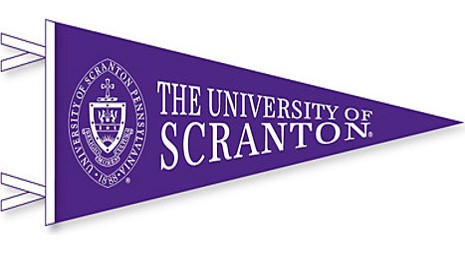Home >
Academics > College of Arts and Sciences > Psychology Department > Psychology Mission & Objectives
Psychology Mission & Objectives
Psychology is the scientific study of human behavior and mental processes. It encompasses a diversity of specializations, including clinical, cognitive, developmental, evolutionary, health, learning, social, personality, physiological, and industrial/organizational. Psychologists work in academic settings, independent practices, hospitals, clinics, as well as government, business, and industry.
Our Mission
The Psychology Department promotes the acquisition and application of the principal findings and methods of psychological science and encourages both its faculty and students to pursue behavioral research and community service.
The Department subscribes to the Mission and Values statement of the University of Scranton, especially emphasizing the personal development of students and our commitment to academic excellence in the Ignatian tradition.
 |
 |
Program Learning Objectives
1: Knowledge of Psychology
Outcome 1: On the ETS Major Field Test in Psychology administered to graduating majors every third year, psychology majors will score no lower than 65th percentile for both individual and institutional comparisons.
Outcome 2: Graduating psychology majors as a group will score at least at the 60th percentile on all four of the ETS Major Field Achievement Test subscores: Learning/Cognition/Memory (27 items); Sensory/Perception/Physiology (22 items); Clinical/Abnormal/Personality (25 items); and Developmental/Social (31 items).
2: Scientific Inquiry and Critical Thinking
Outcome 1: Graduating psychology majors will score no lower than the 65th percentile for both individual and institutional comparisons on the measurement and methodology assessment indicators subsection of the ETS Major Field Test in Psychology.
Outcome 2: Psychology majors reach writing competence (per scoring rubrics) in the Psychology program’s two required writing-intensive (EPW) courses: PSYC 212, Research Methods & Statistical Analysis II, and PSYC 491, History and Literature of Psychology II.
Outcome 3: At least 12 psychology majors will present at external research conferences and/or coauthor publications per year.
Outcome 4: All psychology majors will successfully produce a poster as part of the two-semester Research Methods & Statistical Analysis sequence.
3: Professional and Ethical Development
Outcome 1: All psychology majors will complete PSYC 390 (our 1-credit Career Development Seminar) and will demonstrate a pre-post course increase in their career knowledge and skills.
Outcome 2: All psychology majors will successfully pass (80% correct) the multiple-module CITI test on ethics in behavioral research.
Outcome 3: All psychology interns will demonstrate pre-post course improvement on an ethics exam and will demonstrate satisfactory ethical conduct in the field (as assessed by both their self-reported performance and their external supervisors’ evaluations).
Outcome 4: At least 90% of graduating psychology majors will complete at least one transcriptable experiential activity in the psychology department (30%+ in Student Faculty Teaching Mentorship Program; 30%+ in Faculty Student Research Mentoring Program; 30%+ in Field Experience in Clinical or Applied Settings; 30%+ in Service Learning/CBL Psychology course).
Outcome 5: At least 90% of the previous year’s psychology graduates responding to the Center for Career Development’s first destination survey will be either employed full-time or pursuing additional education.
Academics
Contact Us:
- Psychology Department
- Scranton, PA 18510
- The University of Scranton
- Phone: 570-941-7630





